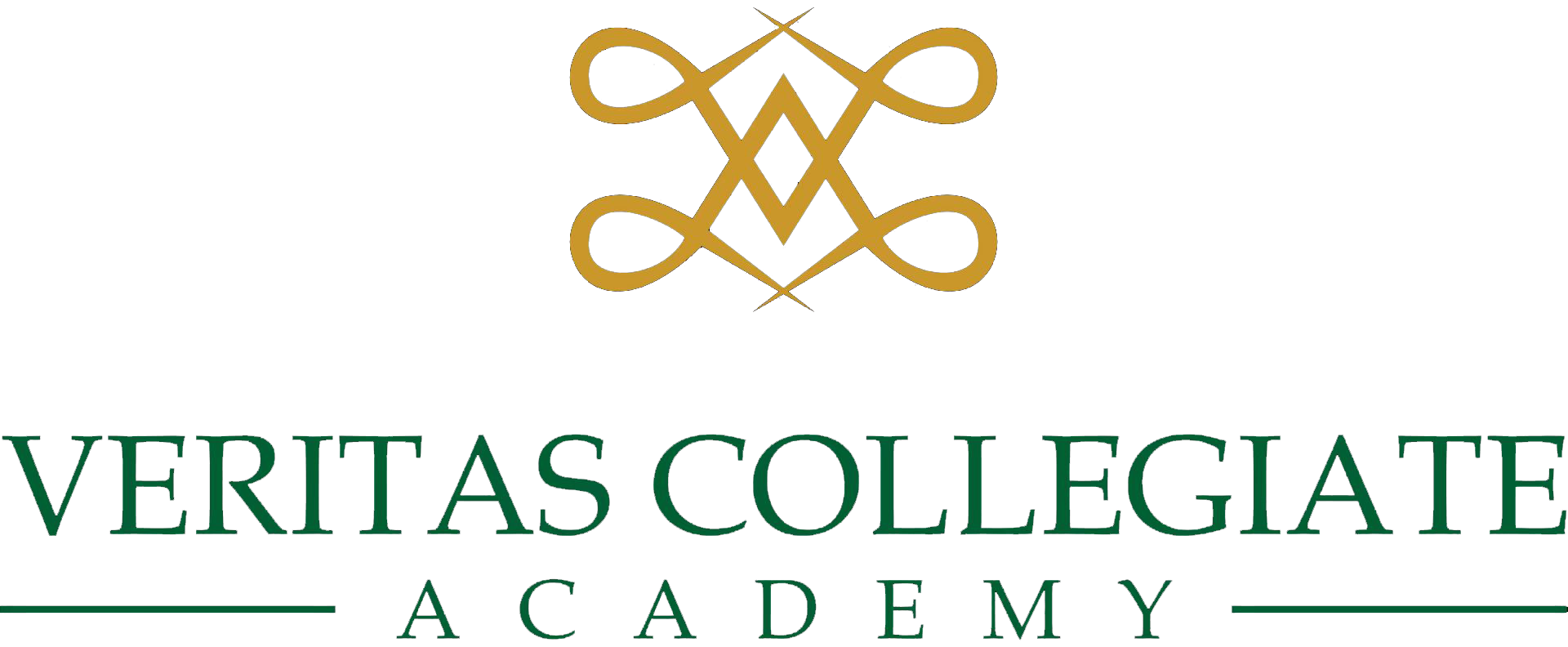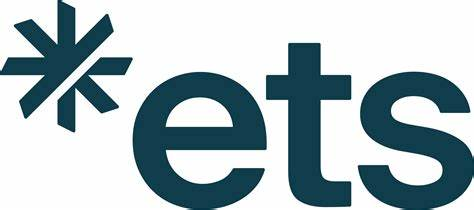Project-Based Learning (PBL)
Project-Based Learning (PBL) is a dynamic, student-centered approach to education that brings learning to life. In this method, students collaborate in teams to select and explore compelling projects across diverse fields such as Elementary Mathematical Modeling, Sensors and Smart Devices, Interactive Game Programming, Wheeled Robot Foundation, Business Entrepreneurship Insight Development Initiative, Biology Lab Exploration- Cells and the Microcosm World, Digital Design and Prototype Development and Physics Exploration Laboratory-Force and Motion. The culmination of their work involves presenting their research findings and project outcomes on campus at the end of the semester through engaging formats like posters, papers, and presentations.
Through a series of meaningful and relevant projects, PBL allows students to apply knowledge in practical ways, empowering them to actively engage with and solve real-world challenges. This hands-on experience is designed to cultivate essential core competencies, including critical thinking, effective teamwork, and clear communication. Ultimately, PBL provides a solid foundation for students as they prepare for future academic exploration in university and beyond.
-


Elementary Mathematical Modeling
-


Intermediate Mathematical Modeling
-


Empowering Youth Action: SDG Project Design and Implementation
-


Interactive Game Programming-Python
-


Wheeled Robot Foundation
-


VEX Robotic Lesson
-


Biology Laboratory Exploration
-


Advanced Biology Lab
-


Digital Design and Prototype Development
-


Advanced 3D Modeling and Animation
-


Physics Exploration Laboratory-Force and Motion
-


Design and Manufacture of Embedded System Circuit
Elementary Mathematical Modeling
ELEMENTARY MATHEMATICAL MODELING
Course Overview
This course introduces middle school students to the fundamental processes and methods of mathematical modeling through the exploration and resolution of real-world problems. Students will learn how to transform practical issues into mathematical models and employ basic mathematical tools and techniques for analysis and solution.
Course Highlights
Highly Practical
Highly Practical: Grounded in authentic, everyday problems, the course cultivates students’ ability to apply mathematics to address real-world challenges.

Step-by-Step Progression
Step-by-Step Progression: The curriculum is designed to gradually build modeling skills, moving from simple proportional relationships to the decomposition and modeling of more complex issues.

Interdisciplinary Integration
Interdisciplinary Integration: Blending mathematics, data analysis, time management, and more, the course offers a comprehensive interdisciplinary learning experience.

Project-Based Learning
Project-Based Learning: Each session incorporates practical modeling projects, enabling students to gain a deep understanding of the mathematical modeling process through hands-on application.

Learning Objectives
Master the fundamental concepts of mathematical modeling and understand its application in solving real-world problems.
Learn to utilize mathematical modeling techniques, including data analysis, graphing, proportional reasoning, and geometric modeling, to tackle practical issues.
Enhance skills in time management, probability analysis, linear modeling, and resource allocation to broaden the application of mathematical modeling skills.
Competitions & Events You’ll Be Ready to Tackle
-
China Mathematical
Olympiad (CMO) -
International Mathematical
Modeling Challenge (IMMC) -
National Mathematical
Modeling Competition for
Middle School Students -
High School Mathematical
Contest in Modeling (HiMCM) -
National Youth Science
and Innovation Competition
Course Outline
-
Session 1
What is Mathematical Modeling?
-
Session 2
Basic Data Analysis and Graphing
-
Session 3
Proportion and Proportional Reasoning Modeling
-
Session 4
Geometric Modeling and Applications
-
Session 5
Time Management and Optimization Modeling
-
Session 6
Probability and Risk Analysis
-
Session 7
Linear Relationships and Trend Prediction
-
Session 8
Resource Allocation Modeling
-
Session 9
Decomposition and Modeling of Complex Problems
-
Session 10
Project Showcase and Review
Intermediate Mathematical Modeling
INTERMEDIATE MATHEMATICAL MODELING
Course Overview
This challenging course guides high school students into the sophisticated concepts and methodologies of mathematical modeling by tackling and resolving increasingly complex real-world problems. Students will learn to construct intricate mathematical models and employ advanced mathematical tools and techniques for analysis and solution-finding.
Course Highlights
Project-Centric Learning
Project-Centric Learning: Each session incorporates practical projects, enabling students to apply theoretical knowledge to tangible problems through hands-on work, thereby strengthening both understanding and practical application skills.

Progressive Complexity
Progressive Complexity: The curriculum guides students from foundational modeling concepts to advanced models, progressively exploring complex methods such as non-linear, multivariate, and discrete modeling.

Data-Driven Approach
Data-Driven Approach: Emphasis is placed on data collection and analysis. Students will learn to handle complex datasets, cultivating data literacy and applying these skills in the construction of models.

Comprehensive Project Showcase
Comprehensive Project Showcase: Concluding the course, students will independently complete and present a complex modeling project, providing a thorough assessment of their acquired knowledge and enhancing their innovative thinking and presentation abilities.

Learning Objectives
Master the construction and analysis of complex mathematical models.
Learn to process and analyze complex data and apply it within mathematical modeling contexts.
Utilize modeling to solve real-world problems, understanding the application of non-linear, multivariate, discrete, optimization, dynamic, and probabilistic models.
Enhance students’ critical thinking and problem-solving skills within the realm of mathematical modeling.
Competitions & Events You’ll Be Ready to Tackle
-
Chinese Mathematical
Olympiad (CMO) -
International Mathematical
Modeling Challenge (IMMC) -
National Mathematical
Modeling Competition for
High School Students (China) -
High School Mathematical
Contest in Modeling
(HiMCM, USA) -
National Youth
Science and Technology
Innovation Competition
Course Outline
-
Session 1
Review and Advanced Modeling Concepts
-
Session 2
Data Collection and Processing
-
Session 3
Nonlinear Models and Applications
-
Session 4
Multivariate Models and Interaction Effects
-
Session 5
Discrete Mathematical Models and Applications
-
Session 6
Optimization Models and Resource Allocation
-
Session 7
Dynamic Models and Time Series Analysis
-
Session 8
Probabilistic Models and Risk Analysis
-
Session 9
Model Validation and Optimization
-
Session 10
Project Showcase and Review
Empowering Youth Action: SDG Project Design and Implementation
Course Overview
This dynamic course engages students with the UN Sustainable Development Goals through hands-on projects. From research to implementation, students develop project management, teamwork, and problem-solving skills, preparing them to address real-world challenges with innovative thinking and social responsibility.
Course Highlights
Project-Based SDG Engagement
Project-Based SDG Engagement: By guiding students through complete project design and implementation related to the SDGs, this course offers a deep dive into practical application. Students will have the opportunity to earn SDG-related certifications, reinforcing their commitment to social responsibility and sustainable development.

Interdisciplinary Teamwork
Interdisciplinary Teamwork: Through collaborative group work, students will explore and address SDG-related challenges alongside peers, fostering teamwork, leadership, and innovative thinking. This practical experience builds real-world competencies and accumulates project outcomes for potential certification.

Data-Driven Research & Evaluation
Data-Driven Research & Evaluation: Students will employ research methods, data collection, and analysis to evaluate the impact of their sustainability projects. This practice provides tangible evidence for certification assessment and ensures they possess effective evaluation skills for real-world application.

Multimedia Presentation & Formal Reporting
Multimedia Presentation & Formal Reporting: Emphasis is placed on creating compelling multimedia presentations and writing formal reports. Students will showcase their project achievements, providing verifiable accomplishments for certification purposes, thereby enhancing their communication and presentation abilities.

Learning Objectives
Deepen SDG Understanding: Enable students to explore and engage deeply with the SDGs, selecting areas of personal interest for focused research and action.
Master Project Design & Execution: Develop students’ end-to-end capabilities, from conducting problem research to implementing action plans.
Enhance Data Analysis & Evaluation Skills: Equip students to assess project impact through research and data analysis, enabling them to propose informed improvements.
Presentation Skills: Improve students’ ability to articulate ideas clearly and concisely through multimedia presentations and formal report writing.
Competitions & Events You’ll Be Ready to Tackle
-
Global SDG
Creative Challenge -
International Youth
Innovation & Future
Forum (ISIF) -
International Environmental
& Sustainable Development
Challenge -
Global Environmental
Solutions Challenge
Course Outline
-
Session 1
Overview of UN Sustainable Development Goals (SDGs) and Project Planning
-
Session 2
Research Methodologies and Data Collection
-
Session 3
Community Needs Analysis and Problem Definition
-
Session 4
Action Plan Design and Implementation Pathways
-
Session 5
Sustainable Technologies and Innovation
-
Session 6
Project Execution and Documentation
-
Session 7
Impact Assessment and Optimization
-
Session 8
Project Showcase and Multimedia Production
-
Session 9
Proposal Writing and Formalization
-
Session 10
Project Review and Final Presentation
Interactive Game Programming-Python
INTERACTIVE GAME PROGRAMMING
Course Overview
This dynamic course guides students through advanced programming design and the development of interactive games using text-based programming languages like Python. Students will delve into fundamental programming structures, functions, arrays, and basic Graphical User Interface (GUI) design principles.
Course Highlights
Deep Dive into Core Text-Based Programming
Deep Dive into Core Text-Based Programming: Through Python, students will thoroughly explore the fundamental concepts that underpin text-based coding.

Emphasis on Practical Application
Emphasis on Practical Application: Programming skills are honed through hands-on experience, directly within the engaging context of real game development projects.

Progressive Skill Development
Progressive Skill Development: The curriculum guides students from foundational principles to advanced techniques, systematically building expertise in game development.

Comprehensive Skill Set
Comprehensive Skill Set: From organizing code to designing graphical interfaces, students gain a well-rounded understanding of the entire game development process, ensuring they are equipped for complete projects.

Learning Objectives
Master the Fundamentals: Gain a solid understanding of the Python programming language and its practical applications in game development.
Design and Build Interactive Games: Learn to conceptualize, design, and develop engaging games, incorporating essential elements such as user interfaces, animations, and sound effects.
Develop Strong Coding Practices: Acquire the ability to independently organize code, design effective functions, and create clean, efficient program structures.
Enhance Creativity and Skill Through Showcase: Utilize project presentations to refine creative expression and demonstrate advanced programming proficiency.
Competitions & Events You’ll Be Ready to Tackle
-
The National Youth
Programming Competition -
Various Pygame
Programming Challenges -
Game Development
Marathons (Game Jams) -
Other Online
Coding Competitions
Course Outline
-
Session 1
Introduction to Programming and Environment Setup
-
Session 2
Variables and Data Types
-
Session 3
Conditional Statements and Logical Judgment
-
Session 4
Loops and Iteration
-
Session 5
Functions and Code Organization
-
Session 6
Graphical User Interface (GUI) Fundamentals
-
Session 7
Event Handling and User Interaction
-
Session 8
Animation and Movement
-
Session 9
Game Design and Sound Effects Integration
-
Session 10
Project Showcase and Feedback
Wheeled Robot Foundation
WHEELED ROBOT FOUNDATION
Course Overview
Explore mechanical control through our Wheeled Robot Foundation course. Students study four chassis structures using the ESP32 platform and graphical programming. Hands-on projects build essential skills, fostering interest in robotics and establishing a foundation for future technological innovation. Biology
Course Highlights
Project-Based Learning
Project-Based Learning: Every session is project-driven, allowing students to gain a deep understanding of wheeled robot concepts and principles through designing, assembling, and programming.

Diverse Chassis Design
Diverse Chassis Design: Explore various chassis structures, including differential drive, Mecanum wheels, Ackermann steering, and omnidirectional wheels, expanding your understanding of different robotic designs.

Sensors & Intelligent Control
Sensors & Intelligent Control: Learn to integrate sensors and implement intelligent control functions like autonomous navigation and path planning, enhancing your programming and system integration skills.

Competition & Optimization
Competition & Optimization: The final session culminates in a competition project to test your knowledge, guiding you to optimize designs and code in real-world scenarios to improve robot performance.

Learning Objectives
Understand and master the design principles and control methods for various wheeled robot chassis, enhancing your expertise in robot design and control.
Acquire the skills to integrate sensors into robots, enabling autonomous navigation and intelligent control.
Develop practical skills and innovative thinking by participating in robotics competitions, optimizing robot design and programming techniques.
Competitions & Events You’ll Be Ready to Tackle
-
VEX Robotics
Competition -
IRO ( International
Robot Olympiad) -
National Youth Information
Literacy Competition -
China Youth
Robotics Competition -
National K-12 Information
Technology Innovation &
Practice Competition
Course Outline
-
Session 1
Introduction to Wheeled Robotics and ESP32 Basics
-
Session 2
Differential Drive Principles and Programming Control
-
Session 3
Mecanum Wheel Mechanics and Implementation
-
Session 4
Ackermann Steering Structure and Control
-
Session 5
Omnidirectional Wheel Design and Programming Control
-
Session 6
Selecting and Designing Robot Chassis Structures
-
Session 7
Sensor Integration and Autonomous Navigation
-
Session 8
Path Planning and Intelligent Control
-
Session 9
Combining Multiple Chassis Structures and Coordinated Control
-
Session 10
Robotics Competition and Project Optimization
VEX Robotic Lesson
VEX ROBOTIC LESSON
Course Overview
Our VEX Robotics course empowers students by distilling the core scoring functionalities from past competition challenges. Students engage in designing essential chassis, drive systems, and actuation mechanisms based on these insights. Through this hands-on approach, learners become familiar with the various mechanical components and structural principles of the VEX V5 system, alongside fundamental workshop tools. They also master the V5 programming environment, gaining proficiency in coding their robots using C++ or Python.
Course Highlights
Foundation for All
Foundation for All: The curriculum is thoughtfully structured from the ground up, making it accessible for beginners while providing a solid launchpad into VEX V5 robotics.

Integrated Learning
Integrated Learning: We emphasize the powerful synergy between theory and practice. Extensive hands-on activities and project-based challenges reinforce theoretical concepts, significantly enhancing students’ practical skills and problem-solving abilities.

Competition Core Concepts
Competition Core Concepts: By simplifying annual game rules and focusing on core scoring mechanisms, we transform competition principles into tangible classroom content. This allows students to grasp the design process and analyze the constraints inherent in building effective robots.

Learning Objectives
Gain a comprehensive understanding of VEX V5 hardware components and confidently utilize the VEXcode V5 programming software.
Explore fundamental robotic design patterns and structures, cultivating essential computational thinking, programming proficiency, and systematic problem-solving approaches.
Acquire a solid understanding of VEX competition rules, preparing them effectively for future competitive robotics endeavors.
Competitions & Events You’ll Be Ready to Tackle
-
VEX Robotics
Competition -
WRC World
Robot Contest
Course Outline
-
Session 1
Introduction to the VEX V5 System
-
Session 2
Detailed Exploration of VEX V5 Hardware
-
Session 3
Fundamentals of VEXcode V5 Programming
-
Session 4
Robot Movement Control
-
Session 5
Loops and Programming Techniques
-
Session 6
Conditional Statements
-
Session 7
Variable Setup and Application
-
Session 8
Sensor Utilization
-
Session 9
Threshold Calculation and Application
-
Session 10
Remote Control Operations and Challenge Completion
Biology Laboratory Exploration: Cells and the Microscopic World
Biology Laboratory Exploration: Cells and the Microscopic World
Course Overview
Through a series of investigative activities, this course delves into the structure, function, and vital roles of cells and microorganisms within living organisms. Students will learn to utilize laboratory equipment, such as microscopes and centrifuges, to study the physiological processes and ecological functions of cells and microbes.
Course Highlights
Hands-On Exploration
Hands-On Exploration: Students actively investigate the structure and function of cells and microorganisms through practical laboratory experiments, fostering a spirit of scientific inquiry.

Comprehensive Biological Foundation
Comprehensive Biological Foundation: The curriculum covers diverse topics including cell theory, energy conversion, genetic transmission, and antibiotic action, equipping students with a well-rounded understanding of biology.

Real-World Applications
Real-World Applications: By examining the practical applications of cells and microorganisms in biotechnology, medicine, and agriculture, the course enhances students’ appreciation for the relevance of biology in everyday life.

Interdisciplinary Approach
Interdisciplinary Approach: Integrating knowledge from ecology, biotechnology, and medicine, the course provides students with a holistic scientific learning experience.

Learning Objectives
Master fundamental knowledge of cells and microorganisms.
Gain practical understanding of the structure and function of cells and microorganisms through experimentation.
Learn the basic principles of biotechnology and its applications.
Competitions & Events You’ll Be Ready to Tackle
-
National Youth
Science and Innovation
Competition -
"Tomorrow's Young
Scientists" Award Program -
Qiu Chengtong Middle
School Science Award -
Chinese National
Biology Olympiad (CNBO) -
USA Biology
Olympiad (USABO)
Course Outline
-
Session 1
Cell Theory and Microscope Application
-
Session 2
Functions of the Cell Membrane and Organelles
-
Session 3
Cellular Respiration and Energy Conversion
-
Session 4
Cell Division and Genetic Transmission
-
Session 5
Microbial Structure and Classification
-
Session 6
Antibiotics and Microbial Interactions
-
Session 7
Ecological Functions of Microorganisms
-
Session 8
Interactions Between Viruses and Cells
-
Session 9
Applications of Cells and Microorganisms in Biotechnology
-
Session 10
Project Review and Showcase
Advanced Biology Lab: Molecular Biology and Genes
ADVANCED BIOLOGY LAB: MOLECULAR BIOLOGY AND GENES
Course Overview
This course integrates theoretical learning with hands-on experimentation to equip students with core knowledge and experimental techniques in molecular biology and genetics. Students will explore the structure and function of DNA, the mechanisms regulating gene expression, and the fundamentals of genetic engineering, applying this knowledge through experiments to understand its applications in modern biology.
Course Highlights
Theory Meets Practice
Theory Meets Practice: Through systematic theoretical study and practical lab work, students gain a deep understanding of the core concepts in molecular biology and genetics.

Modern Biotech Applications
Modern Biotech Applications: Students will learn and master contemporary experimental techniques such as molecular cloning, PCR, and gene editing, enhancing their practical skills and scientific inquiry mindset.

Interdisciplinary Integration
Interdisciplinary Integration: The course combines molecular biology, genetics, and bioinformatics, offering students a comprehensive scientific learning experience.

Inquiry and Innovation
Inquiry and Innovation: Each session features specific experimental projects. By designing and implementing experiments, students cultivate innovative thinking and understand the applications of these technologies in medicine, agriculture, and environmental science.

Learning Objectives
Gain an in-depth understanding of DNA structure and function, mastering the core principles of gene expression and regulation.
Learn and apply molecular biology techniques, such as PCR and gene cloning.
Explore the roles of genetic mutations and genetic engineering in biology and medicine.
Competitions & Events You’ll Be Ready to Tackle
-
National Youth Science
and Innovation Competition -
China National
Biology Olympiad (CNBO) -
USA Biology
Olympiad (USABO) -
"Tomorrow's Young
Scientists" Award Program -
Qiu Chengtong Science
Award for Secondary
School Students -
International Genetically
Engineered Machine
(iGEM) Competition
Course Outline
-
Session 1
DNA Structure and Function
-
Session 2
Genes and Transmission of Genetic Information
-
Session 3
DNA Replication and Repair Mechanisms
-
Session 4
Gene Expression and Regulation
-
Session 5
Protein Structure and Function
-
Session 6
Genetic Mutations and Diversity
-
Session 7
Molecular Cloning and Genetic Engineering
-
Session 8
Genomics and Bioinformatics
-
Session 9
Molecular Biology Techniques and Applications
-
Session 10
Project Review and Project Showcase
Digital Design and Prototype Development
DIGITAL DESIGN AND PROTOTYPE DEVELOPMENT
Course Overview
This course guides middle school students through the fundamentals of digital design and prototyping. Utilizing SolidWorks for 3D modeling, students will progress to fabricating and assembling structures akin to engines using 3D printing and laser cutting technologies. They will experience the complete journey from design to manufacturing while mastering the basic principles of mechanical structures.
Course Highlights
Digital Design Fundamentals
Digital Design Fundamentals: Through SolidWorks software, students will acquire foundational digital design skills, learning to create, modify, and optimize complex 3D models.

Bridging Design to Reality
Bridging Design to Reality: The curriculum integrates the practical prototyping process, teaching students to translate digital designs into tangible objects using 3D printing and laser cutting techniques.

Emphasis on Mechanical Structures
Emphasis on Mechanical Structures: A focus on understanding and applying mechanical structures allows students to practice designing, assembling, and testing complex systems, such as engine-like mechanisms.

End-to-End Engineering Experience
End-to-End Engineering Experience: By participating in the entire process from design to fabrication, students will encounter the creativity and challenges inherent in engineering design, enhancing their comprehensive skills through project presentations and reviews.

Learning Objectives
SolidWorks Proficiency: Master the basics of SolidWorks operation and 3D modeling skills, enabling the design and modification of complex mechanical structure models.
Fabrication Readiness: Learn to optimize designs for 3D printing and laser cutting, and acquire the necessary operational skills.
Practical Project Application: Through a hands-on project, students will design, fabricate, and assemble a mechanical structure similar to an engine, thereby understanding the fundamental principles of mechanical design.
Presentation and Feedback: In the showcase and review sessions, students will learn to articulate and present their design work, using feedback to refine their design and fabrication abilities.
Competitions & Events You’ll Be Ready to Tackle
-
National Youth Mechanical
Design Competition -
International Engineering
Design Competition -
STEM Creative
Technology Challenge
Course Outline
-
Session 1
Introduction to Digital Design and SolidWorks Basics
-
Session 2
Sketching and Basic Shape Modeling
-
Session 3
Advanced Modeling Techniques and Component Design
-
Session 4
Assembly Design and Motion Simulation
-
Session 5
Designing for and Preparing Models for 3D Printing
-
Session 6
Laser Cutting and 2D Design
-
Session 7
Post-Processing of 3D Printed and Laser-Cut Parts
-
Session 8
Prototype Assembly and Testing
-
Session 9
Project Optimization and Final Assembly
-
Session 10
Project Showcase and Review
Advanced 3D Modeling and Animation
ADVANCED 3D MODELING AND ANIMATION
Course Overview
This course is designed to elevate students’ skills in 3D modeling and animation. Students will learn to create complex models, apply advanced materials and textures, understand the fundamental principles and techniques of animation, culminating in the production of a complete 3D animated short film.
Course Highlights
Professional Software Mastery
Professional Software Mastery: Utilizing industry-standard Blender software, students will acquire sophisticated 3D modeling and animation techniques, enabling them to produce high-quality 3D works.

Comprehensive Workflow
Comprehensive Workflow: The course covers the entire 3D production pipeline, from advanced modeling, material application, and lighting setup to animation creation and post-processing, giving students a holistic understanding of every stage.

Creative Expression & Technical Integration
Creative Expression & Technical Integration: Emphasis is placed on blending creativity with technical skills. Students will apply their knowledge in practical projects, crafting 3D animated shorts with compelling narratives and visual impact.

Advanced Techniques for Lifelike Animation
Advanced Techniques for Lifelike Animation: Students will learn sophisticated techniques like skeletal rigging and dynamic simulation to imbue characters with life and movement, enhancing the expressiveness and realism of their animations.

Learning Objectives
Master the techniques for creating complex 3D models, enabling the design and editing of highly detailed objects and character models.
Enhance the visual impact of 3D works by mastering lighting and rendering techniques, creating realistic scene effects.
Learn to use keyframe animation, skeletal rigging, and dynamic simulation to produce fluid, natural character animations and physical effects.
Complete a full 3D animated short film project, from initial concept to final presentation, developing comprehensive design and production capabilities.
Competitions & Events You’ll Be Ready to Tackle
-
International
Animation Festival -
National Youth
Creative Design Competition -
CG Art & Animation
Creative Challenge
Course Outline
-
Session 1
Advanced 3D Modeling Overview and Software Introduction
-
Session 2
Creation and Editing of Complex Models
-
Session 3
Organic Modeling and Character Design
-
Session 4
Materials, Textures, and UV Mapping
-
Session 5
Lighting and Rendering Techniques
-
Session 6
Animation Fundamentals and Keyframe Animation
-
Session 7
Skeletal Rigging and Character Animation
-
Session 8
Dynamic Simulation and Special Effects
-
Session 9
Post-Processing and Compositing
-
Session 10
Animation Project Showcase and Review
Physics Exploration Laboratory: Force and Motion
PHYSICS EXPLORATION LABORATORY: FORCE AND MOTION
Course Overview
This dynamic course delves into the fundamental principles of force and motion through a series of engaging, hands-on laboratory activities. Students will utilize the Phyphox software to measure, analyze, and interpret experimental data, fostering a deep understanding of the relationships between forces and movement. We also explore how these core physics concepts manifest in our everyday world.
Course Highlights
Emphasis on Practical Application
Emphasis on Practical Application: The curriculum centers on experiential learning, guiding students through physical experimentation and data analysis to grasp the core principles of force and motion.

Integration of Modern Technology
Integration of Modern Technology: Students leverage the Phyphox app for precise data collection and analysis, applying their physics knowledge to investigative experiments and enhancing their intuitive grasp of physical phenomena.

Interdisciplinary Approach
Interdisciplinary Approach: The course provides a comprehensive scientific experience by covering essential physics topics including mechanics, kinematics, and the conservation of energy.

Focus on Inquiry and Innovation
Focus on Inquiry and Innovation: Students develop their scientific inquiry skills and creative thinking by designing and implementing their own experimental projects, culminating in presentations to share their findings and learning.

Learning Objectives
Master the foundational physics concepts related to force and motion.
Learn to effectively use Phyphox software for collecting and analyzing data in physics experiments.
Understand and apply core physical principles, such as Newton’s Laws of Motion and the Law of Conservation of Energy.
Competitions & Events You’ll Be Ready to Tackle
-
National Youth Science
and Innovation Competition -
"Tomorrow's Young
Scientists" Award Program -
Qiu Chengtong Middle
School Science Award -
Chinese Physics
Olympiad (CPhO)
Course Outline
-
Session 1
Fundamental Concepts of Force
-
Session 2
Newton's First Law (Law of Inertia)
-
Session 3
Newton's Second Law (Law of Dynamics)
-
Session 4
Newton's Third Law (Action and Reaction)
-
Session 5
Linear Motion and Uniformly Accelerated Motion
-
Session 6
Projectile Motion and Gravity
-
Session 7
Circular Motion and Centripetal Force
-
Session 8
The Law of Conservation of Energy
-
Session 9
Collisions and Conservation of Momentum
-
Session 10
Project Review and Showcase
Design and Manufacture of Embedded System Circuit
DESIGN AND MANUFACTURE OF EMBEDDED SYSTEM CIRCUIT
Course Overview
This course introduces students to the fundamental concepts and skills of embedded systems circuit design. Students will learn to utilize integrated circuit design software for circuit creation and employ pick-and-place machines to fabricate circuit boards, ultimately completing a comprehensive embedded system circuit project.
Course Highlights
Comprehensive Curriculum
Comprehensive Curriculum: Systematically covers core technologies and application scenarios in embedded systems circuit design, progressing from foundational to advanced concepts.

Professional Software Utilization
Professional Software Utilization: Students will use industry-standard integrated circuit design software, such as Altium Designer or Eagle, for circuit design and PCB layout.

End-to-End Workflow Coverage
End-to-End Workflow Coverage: The course encompasses the entire process, from circuit simulation, component selection, PCB fabrication, to embedded system programming and debugging.

Hands-On Fabrication and Debugging
Hands-On Fabrication and Debugging: Practical sessions include using pick-and-place machines for PCB assembly, combined with soldering techniques and testing tools for circuit debugging.

Learning Objectives
Grasp the fundamental concepts of embedded systems circuit design and understand its significance in practical applications.
Acquire proficiency in using professional integrated circuit design software for schematic capture and PCB layout.
Develop the ability to independently fabricate, solder, and debug circuit boards, achieving basic functionalities of an embedded system.
Enhance comprehensive design capabilities and problem-solving skills through creative project presentations.
Competitions & Events You’ll Be Ready to Tackle
-
National Electronic
Design Competition -
Embedded Systems
Design Competition -
Creative Electronics
Making Contest
Course Outline
-
Session 1
Embedded Systems and Circuit Design Fundamentals
-
Session 2
Introduction to Integrated Circuit Design Software
-
Session 3
PCB Design and Layout
-
Session 4
Circuit Simulation and Verification
-
Session 5
Introduction to Pick-and-Place Machines and SMT Technology
-
Session 6
Component Selection and Procurement
-
Session 7
PCB Fabrication and Soldering
-
Session 8
Multimeter and Test Equipment Usage
-
Session 9
Embedded System Programming and Debugging
-
Session 10
Creative Embedded Systems Project Showcase

 GUANGHUA ACADEMY >
GUANGHUA ACADEMY > 


